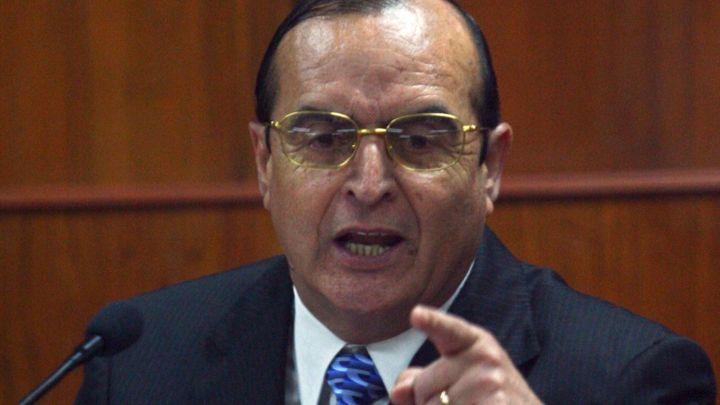A Perspective on Peru
by James Como

Vladimiro Montesinos
In August 2016, I wrote here of Pedro Pablo Kuczynski (PPK), who had been sworn in as Peru’s president a month earlier. I remarked that he looked especially tall because he is surrounded by pygmies. So far that observation has been vindicated. The Congress, dominated by the opposition party – that of Keiko Fujimori, the ex-President’s daughter, whom PPK had defeated by less than one percentage point and which is led by her brother – has not only blocked PPK’s initiatives but lately accused him of corruption.
Congress held a sort of trial – to impeach or not to impeach? – at which PPK’s lawyer made a shambles of the charge. However, abstaining from the vote were the Fujimoristas. Presently, PPK pardoned ex-President Alberto Fujimori, who had been convicted of several abuses (though not of venality) and sentenced to twenty-five years in prison. At the time of the pardon he had served twelve. Much of the country went semi-nuts, accusing PPK of being party to a quid pro quo. The government responded that it was a Christmas pardon (not amnesty), that Fujimori is pushing eighty, and that he is in bad health (which may not be true, though for at least two years that has been the medical report). Two contextual items are worthy of note: 1/ the Fujimoristas have great popular support (obviously, from there domination of Congress), so the outcry was not from a majority. 2/ PPK is a devout Catholic (as is Keiko): forgiveness is bred in our bones. Now (perhaps as you read this) the Pope is in Peru, bringing yet more news.
In 1990, while covering the Peruvian presidential election (for National Review) that Mario Vargas Llosa managed to lose to Alberto Fujimori, two items of particular interest struck me. The first was an open statement by Fujimori that what Peru needed was a ten-year dictatorship. No one else picked that up. His surprising ‘self-coup’ of 1992, when he disbanded the Congress and much of the judiciary should have surprised no one. The second item was a person: Vladimiro Montesinos, whom I referred to as “the joker in [Fujmori’s] deck,” which turned out to be a woeful understatement. He is now in prison for life, having overseen the extra-judicial killing of many and enriched himself to the tune of hundred of millions of dollars. (When he spilled coffee on a check made out to him for $1.5 million he simply threw it away.) The man’s depredations knew no bounds. None. And, whether fully complicit or not, Fujimori at the very least was willfully ignorant of Montesino’s diabolism. On the other hand, Fujimori broke the back of Sendero Luminoso, a horrific Pol Pot terrorist group that for ten years perpetrated the most grotesque enormities on the Peruvian civilian population.
Anyone who cares to know the stories may read two outstanding investigative works. The first is The Imperfect Spy: The Many Lives of Vladimiro Montesinos, by Sally Bowen and Jane Holligan; the second is Fujimori’s Coup and the breakdown of Democracy in Latin America, by Charles D. Kenney. The second is a highly-contextualized scholarly work; the first is a tale so awful that Hollywood would have to tone it down it.
What Pope Francis will have to say about the pardon, if anything, is anybody’s guess.